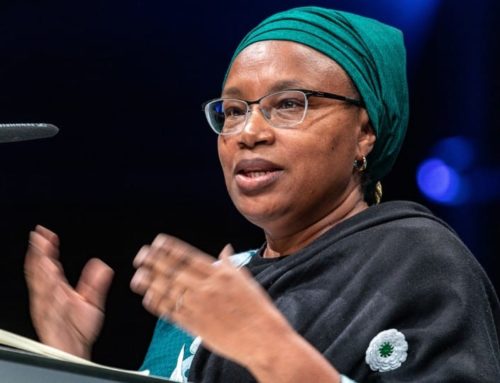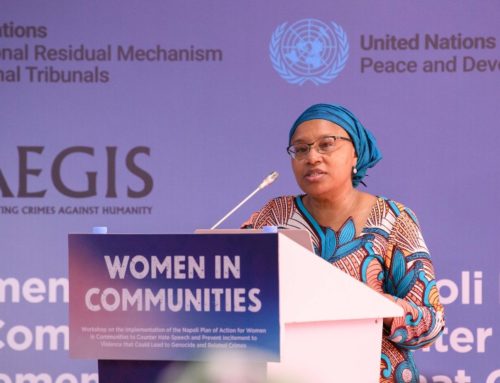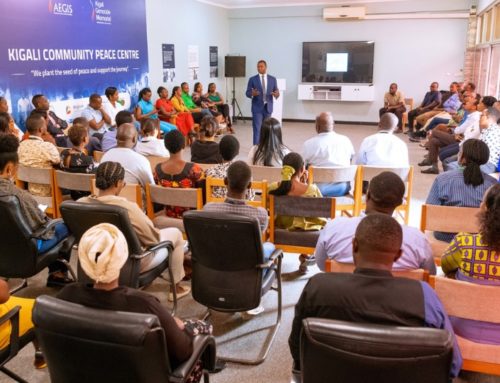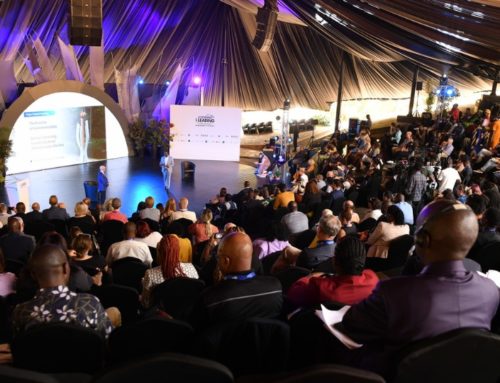 25 April 2013 – Ten years ago, British diplomat Mukesh Kapila became head of the UN in Sudan. Within a year of taking the post, he would publicly declare the Sudanese Government guilty of ethnic cleansing in Darfur.
25 April 2013 – Ten years ago, British diplomat Mukesh Kapila became head of the UN in Sudan. Within a year of taking the post, he would publicly declare the Sudanese Government guilty of ethnic cleansing in Darfur.
At the Geneva Press Club, 17.30 – 19.30 on Thursday 2 May, the whistleblower who first brought Darfur to global attention will give launch on his memoirs, ‘Against A Tide of Evil’; a no-holds-barred insider account of a crisis that still keeps rolling.
“We knew from day one what was going on,” Kapila says in a short film introducing the book (http://www.youtube.com/watch?v=WEUWU8JwnDI). “Hardly a day would go by without an e-mail report being sent to
Now Special Representative on Crimes Against Humanity for the Aegis Trust for genocide prevention, this year Kapila revisited the Darfur frontier and travelled 1000km through Sudan’s forgotten war zones in the Nuba Mountains and Blue Nile State. Hundreds of thousands of people in the two areas, bombed out of their villages and farms, have been cut off from international humanitarian relief since the outbreak of hostilities between the Sudanese Government and opposition groups in June 2011.
“Omar Bashir – the only sitting head of state in the World wanted by the ICC for genocide – is using the same tactics of systematic ethnic cleansing in the Nuba Mountains and Blue Nile that I witnessed in Darfur ten years ago,” says Kapila. “The suffering of people with no access to aid has reached desperate levels, and the international community’s failure to ensure relief is completing the work started by Sudanese Government bombs and bullets. Meanwhile, doing business as usual with the regime in Khartoum sends a clear signal that whatever western politicians might say to the contrary in the media, this criminal cabal remains free to carry on killing its own people.”
“Kapila’s memoir isn’t just a gripping read; it’s a shocking wake-up call that should move every reader to action,” says Dr James Smith, Chief Executive of the Aegis Trust, who accompanied the former UN Sudan Chief into the Nuba Mountains last year. “He lays bare the crimes against humanity committed by a repeat offender towards whom the rest of the World continues to turn a blind eye. It’s time for all of us to act to change that.”
Mukesh Kapila is now leading the Aegis Trust’s campaign for a global parliamentary network to hold decision-makers to account for their actions on mass atrocities. “Not a single diplomat has been brought to account for the failure to act; in fact, many of them were promoted,” he says of the original response to the Darfur crisis (http://www.youtube.com/watch?v=WEUWU8JwnDI). “When those who are in charge of institutions charged with the responsibility to prevent and protect fail in that duty and there is no accountability for it, then Darfur will happen again and again and again.”
Facilitating the Geneva launch of Mukesh Kapila’s memoirs will be Prof. Gilles Carbonnier, Professor of Development Economics at IHEID. Vice-President of the European Association of Development Research and Training Institutes since 2011, and a board member of Doctors without Borders (MSF-Switzerland) since 2008, he also sits in the Federal Commission for International Development Cooperation and advises investment funds over sustainability and human rights issues.
‘Against A Tide of Evil’ is available from all good bookshops, but 50% of every copy sold through the Aegis Trust goes to genocide prevention.
For more background information on the book, readers can visit www.againstatideofevil.org





